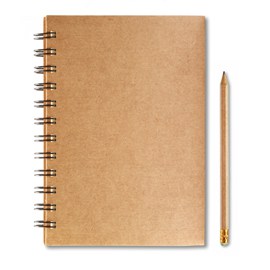
Keeping a weight loss journal is associated with greater accountability, structure and goal-setting behavior–three factors that encourage healthy habits and weight loss.
Starting a Weight Loss Journal
Journaling creates a space where you can track what you eat, how often you exercise and other lifestyle habits that may influence your weight loss success. Keeping a journal is a great tool before weight loss surgery, as it can help you develop awareness about your current lifestyle habits and even lose weight as you prepare for surgery.
Many people consume extra calories without realizing it. Emotional eating and mindless eating are two leading causes of overeating. These include:
- Turning to comfort foods to relieve stress
- Eating in social situations
- Not measuring portions while snacking
- Grazing, or continuously snacking throughout the day, while working or concentrating on other tasks
Keeping a weight loss journal can force you to become more aware of these causes of overeating. After weight loss surgery, you’ll have to moderate your calorie intake and ensure that you are maximizing nutrient consumption. Starting a weight loss journal before your operation can help you get in the habit of paying close attention to every bite you take.
Journaling is a personal process. You don’t need to share what you log with anyone else, and you don’t have to write anything you don’t feel comfortable with. If you aren’t sure how to get started, consider the following tips.
Where to Write
Not every journal is hidden under the pillow behind a lock and key. Your weight loss journal can be in the shape of a small notebook that you keep in your purse, backpack or briefcase. There are also free phone applications that you can use to journal daily. If you prefer typing, consider using a word document on your computer.
What to Write
For the Kaiser Permanente Study, participants were encouraged to log what they ate and drank, and doing so at least six days a week as associated with the greatest weight loss results. As you keep your journal, consider logging details like:
- Food and drink choices
- Portion sizes
- Calorie and nutrient intake
- Exercise goals and progress
- Sleeping habits
- Headaches, stomachaches and your mood
- Stressors
If you are having trouble finding something to write, ask yourself a few simple questions like “how do I feel today,” “what positive qualities do I see in myself,” or “what issues are currently affecting my weight loss progress?” Thought prompters like these can encourage you to explore your thoughts more fully and come to greater awareness about yourself and your weight loss efforts.
Your journal can be as detailed or sparse as you wish. What matters is that you are using it to help you keep track of your weight loss efforts.

